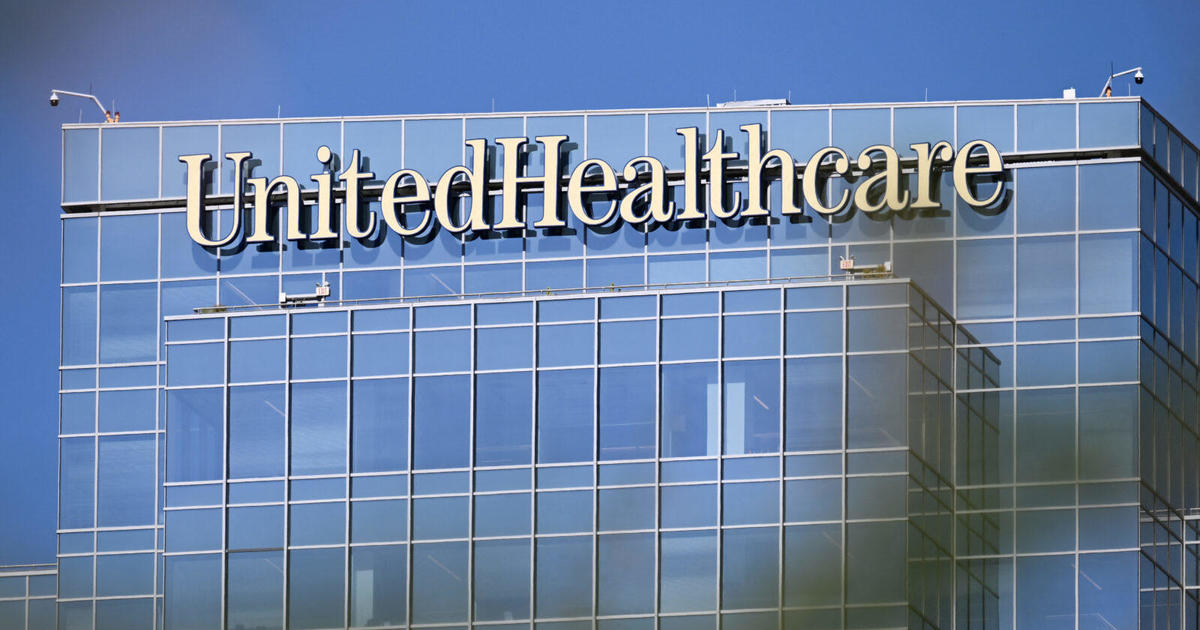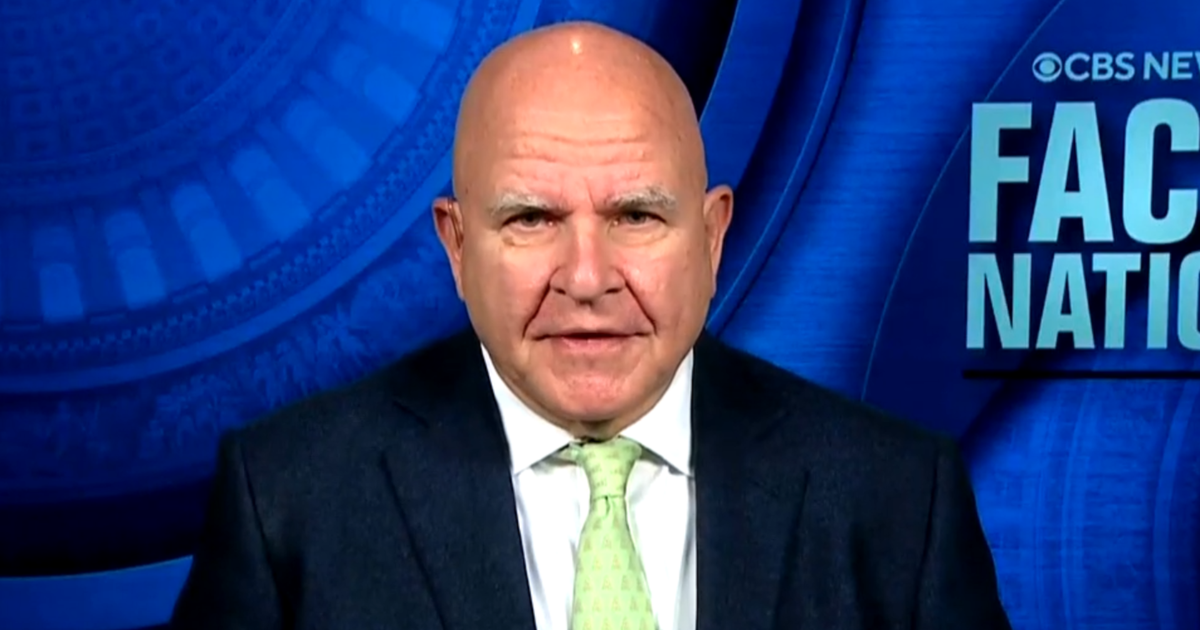CBS News
Hacking at UnitedHealth unit cripples a swath of the U.S. health system: What to know

Early in the morning of Feb. 21, Change Healthcare, a company unknown to most Americans that plays a huge role in the U.S. health system, issued a brief statement saying some of its applications were “currently unavailable.”
By the afternoon, the company described the situation as a “cybersecurity” problem.
Since then, it has rapidly blossomed into a crisis.
The company, recently purchased by insurance giant UnitedHealth Group, reportedly suffered a cyberattack. The impact is wide and expected to grow. Change Healthcare’s business is maintaining health care’s pipelines — payments, requests for insurers to authorize care, and much more. Those pipes handle a big load: Change says on its website, “Our cloud-based network supports 14 billion clinical, financial, and operational transactions annually.”
Initial media reports have focused on the impact on pharmacies, but techies say that’s understating the issue. The American Hospital Association says many of its members aren’t getting paid and that doctors can’t check whether patients have coverage for care.
But even that’s just a slice of the emergency: CommonWell, an institution that helps health providers share medical records, information critical to care, also relies on Change technology. The system contained records on 208 million individuals as of July 2023. Courtney Baker, CommonWell marketing manager, said the network “has been disabled out of an abundance of caution.”
“It’s small ripple pools that will get bigger and bigger over time, if it doesn’t get solved,” Saad Chaudhry, chief digital and information officer at Luminis Health, a hospital system in Maryland, told KFF Health News.
Here’s what to know about the hack.
Who did it?
Media reports are fingering ALPHV, a notorious ransomware group also known as Blackcat, which has become the target of numerous law enforcement agencies worldwide. While UnitedHealth Group has said it is a “suspected nation-state associated” attack, some outside analysts dispute the linkage. The gang has previously been blamed for hacking casino companies MGM and Caesars, among many other targets.
The Department of Justice alleged in December, before the Change hack, that the group’s victims had already paid it hundreds of millions of dollars in ransoms.
Is this a new problem?
Absolutely not. A study published in JAMA Health Forum in December 2022 found that the annual number of ransomware attacks against hospitals and other providers doubled from 2016 to 2021.
“It’s more of the same, man,” said Aaron Miri, the chief digital and information officer at Baptist Health in Jacksonville, Florida.
Because the assaults disable the target’s computer systems, providers have to shift to paper, slowing them down and making them vulnerable to missing information.
Further, a study published in May 2023 in JAMA Network Open examining the effects of an attack on a health system found that waiting times, median length of stay, and incidents of patients leaving against medical advice all increased — at neighboring emergency departments. The results, the authors wrote, mean cyberattacks “should be considered a regional disaster.”
Attacks have devastated rural hospitals, Miri said. And wherever health care providers are hit, patient safety issues follow.
What does it mean for patients?
Year after year, more Americans’ health data is breached. That exposes people to identity theft and medical error.
Care can also suffer. For example, a 2017 attack, dubbed “NotPetya,” forced a rural West Virginia hospital to reboot its operations and hit pharma company Merck so hard it wasn’t able to fulfill production targets for an HPV vaccine.
Because of the Change Healthcare attack, some patients may be routed to new pharmacies less affected by billing problems. Patients’ bills may also be delayed, industry executives said. At some point, many patients are likely to receive notices their data was breached. Depending on the exact data that has been pilfered, those patients may be at risk for identity theft, Chaudhry said. Companies often offer free credit monitoring services in those situations.
“Patients are dying because of this,” Miri said. Indeed, an October preprint from researchers at the University of Minnesota found a nearly 21% increase in mortality for patients in a ransomware-stricken hospital.
How Did It Happen?
The Health Information Sharing and Analysis Center, an industry coordinating group that disseminates intel on attacks, has told its members that flaws in an application called ConnectWise ScreenConnect are to blame. Exact details couldn’t be confirmed.
It’s a tool tech support teams use to remotely troubleshoot computer problems, and the attack is “apparently fairly trivial to execute,” H-ISAC warned members. The group said it expects additional victims and advised its members to update their technology. When the attack first hit, the AHA recommended its members disconnect from systems both at Change and its corporate parent, UnitedHealth’s Optum unit. That would affect services ranging from claims approvals to reference tools.
Millions of Americans see physicians and other practitioners employed by UnitedHealth and are covered by the company’s insurance plans.
UnitedHealth has said only Change’s systems are affected and that it’s safe for hospitals to use other digital services provided by UnitedHealth and Optum, which include claims filing and processing systems.
But not many chief information officers “are jumping to reconnect,” Chaudhry said. “It’s an uneasy feeling.”
Miri says Baptist is using the conglomerate’s technology and that he trusts UnitedHealth’s word that it’s safe.
Where’s the Federal Government?
Neither executive was sanguine about the future of cybersecurity in health care. “It’s going to get worse,” Chaudhry said.
“It’s a shame the feds aren’t helping more,” Miri said. “You’d think if our nuclear infrastructure were under attack the feds would respond with more gusto.”
While the departments of Justice and State have targeted the ALPHV group, the government has stayed behind the scenes more in the aftermath of this attack. Chaudhry said the FBI and the Department of Health and Human Services have been attending calls organized by the AHA to brief members about the situation.
Miri said rural hospitals in particular could use more funding for security and that agencies like the Food and Drug Administration should have mandatory standards for cybersecurity.
There’s some recognition among officials that improvements need to be made.
“This latest attack is just more evidence that the status quo isn’t working and we have to take steps to shore up cybersecurity in the health industry,” said Sen. Mark Warner (D-Va.), the chair of the Senate Select Committee on Intelligence and a longtime advocate for stronger cybersecurity, in a statement to KFF Health News.
KFF Health News (formerly known as Kaiser Health News, or KHN) is a national newsroom that produces in-depth journalism about health issues. Together with Policy Analysis and Polling, KHN is one of the three major operating programs at KFF (Kaiser Family Foundation). KFF is an endowed nonprofit organization providing information on health issues to the nation.
CBS News
Former Trump national security adviser says next couple months are “really critical” for Ukraine

Washington — Lt. Gen. H.R. McMaster, a former national security adviser to Donald Trump, said Sunday that the upcoming months will be “really critical” in determining the “next phase” of the war in Ukraine as the president-elect is expected to work to force a negotiated settlement when he enters office.
McMaster, a CBS News contributor, said on “Face the Nation with Margaret Brennan” that Russia and Ukraine are both incentivized to make “as many gains on the battlefield as they can before the new Trump administration comes in” as the two countries seek leverage in negotiations.
With an eye toward strengthening Ukraine’s standing before President-elect Donald Trump returns to office in the new year, the Biden administration agreed in recent days to provide anti-personnel land mines for use, while lifting restrictions on Ukraine’s use of U.S.-made longer range missiles to strike within Russian territory. The moves come as Ukraine marked more than 1,000 days since Russia’s invasion in February 2022.
Meanwhile, many of Trump’s key selection for top posts in his administration — Rep. Mike Waltz for national security adviser and Sens. Marco Rubio for secretary of state and JD Vance for Vice President — haven’t been supportive of providing continued assistance to Ukraine, or have advocated for a negotiated end to the war.
CBS News
McMaster said the dynamic is “a real problem” and delivers a “psychological blow to the Ukrainians.”
“Ukrainians are struggling to generate the manpower that they need and to sustain their defensive efforts, and it’s important that they get the weapons they need and the training that they need, but also they have to have the confidence that they can prevail,” he said. “And any sort of messages that we might reduce our aid are quite damaging to them from a moral perspective.”
McMaster said he’s hopeful that Trump’s picks, and the president-elect himself, will “begin to see the quite obvious connections between the war in Ukraine and this axis of aggressors that are doing everything they can to tear down the existing international order.” He cited the North Korean soldiers fighting on European soil in the first major war in Europe since World War II, the efforts China is taking to “sustain Russia’s war-making machine,” and the drones and missiles Iran has provided as part of the broader picture.
“So I think what’s happened is so many people have taken such a myopic view of Ukraine, and they’ve misunderstood Putin’s intentions and how consequential the war is to our interests across the world,” McMaster said.
On Trump’s selections for top national security and defense posts, McMaster stressed the importance of the Senate’s advice and consent role in making sure “the best people are in those positions.”
McMaster outlined that based on his experience, Trump listens to advice and learns from those around him. And he argued that the nominees for director of national intelligence and defense secretary should be asked key questions like how they will “reconcile peace through strength,” and what they think “motivates, drives and constrains” Russian President Vladimir Putin.
Trump has tapped former Rep. Tulsi Gabbard to be director of national intelligence, who has been criticized for her views on Russia and other U.S. adversaries. McMaster said Sunday that Gabbard has a “fundamental misunderstanding” about what motivates Putin.
More broadly, McMaster said he “can’t understand” the Republicans who “tend to parrot Vladimir Putin’s talking points,” saying “they’ve got to disabuse themselves of this strange affection for Vladimir Putin.”
Meanwhile, when asked about Trump’s recent selection of Sebastian Gorka as senior director for counterterrorism and deputy assistant to the president, McMaster said he doesn’t think Gorka is a good person to advise the president-elect on national security. But he noted that “the president, others who are working with him, will probably determine that pretty quickly.”
CBS News
Sen. Van Hollen says Biden is “not fully complying with American law” on Israeli arms shipments

Watch CBS News
Be the first to know
Get browser notifications for breaking news, live events, and exclusive reporting.
CBS News
Rep.-elect Sarah McBride says “I didn’t run” for Congrees “to talk about what bathroom I use”

Watch CBS News
Be the first to know
Get browser notifications for breaking news, live events, and exclusive reporting.



